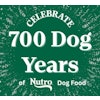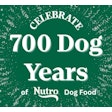A new federal program aims to standardize inspection procedures for petfood and farm animal feed produced in the US, making them safer, according to the US Food and Drug Administration.
The Animal Feed Regulatory Program Standards comprise a series of voluntary standards for inspections by state and other regulatory programs that oversee the production of petfood and feed for farm animals such as cattle, chickens and pigs. Currently, routine inspection and enforcement practices can differ among the various state agencies responsible for conducting inspections of the companies that make these products, and problems can often fall through the gaps, say critics. The new standards aim to help unify this process, with guidelines that range from on-site inspection protocols at feed plants to how to respond to feed-related illnesses or deaths.
The guidelines are comprised of 11 individual standards:
- Regulatory foundation
- Training
- Inspection program
- Auditing
- Feed-related illness or death and emergency response
- Enforcement program
- Outreach activities
- Budget and planning
- Laboratory services
- Sampling program
- Assessment and improvement of standard implementation
While the program is not mandatory, "the FDA is encouraging state programs to implement the feed standards because this will build uniformity and consistency among state feed regulatory programs," said the agency. The new program follows the 2011 federal Food Safety Modernization Act, which shifted the focus of federal regulators away from responding to food contamination to preventing it.

















